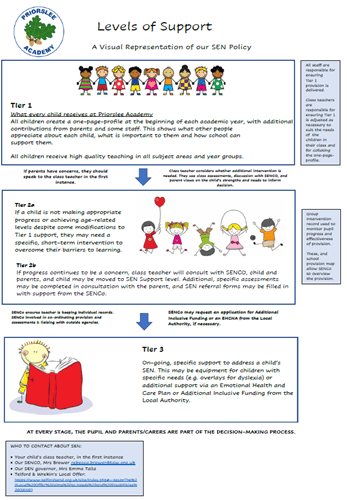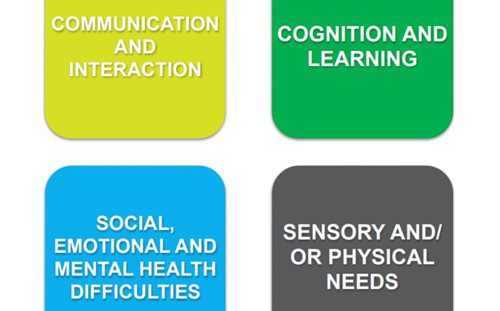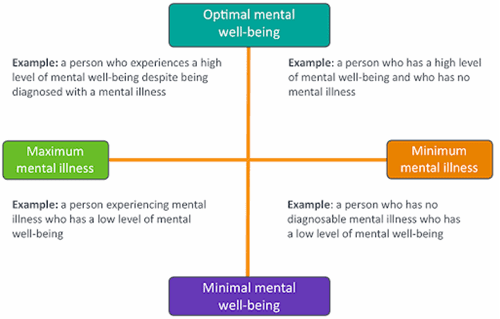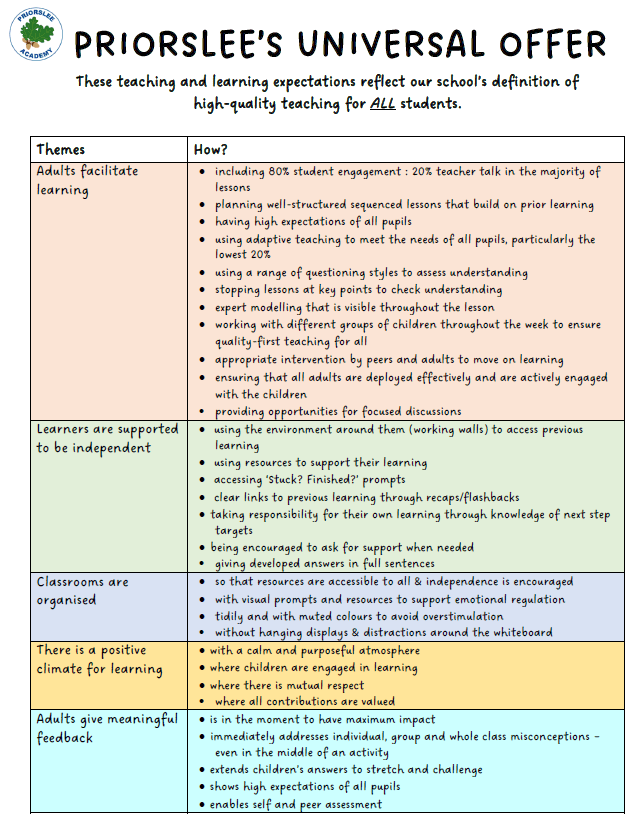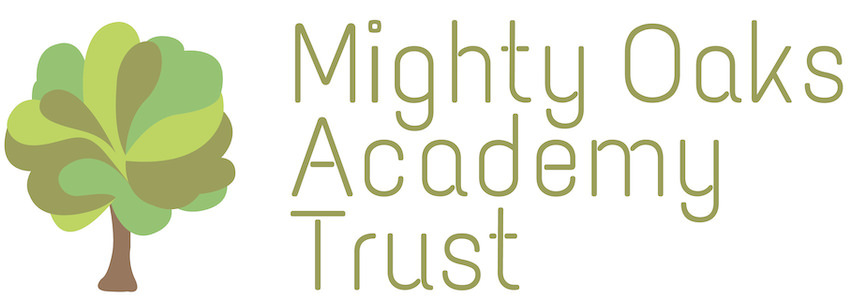Social
Many children have the skills to be able to communicate and exist around others relatively problem free. However, where there is a communicative issue, attachment concern or other challenge, the child may find forming and maintaining relationships with adults and other children a problem. This can affect their sense of wellbeing, access to the community, ability to solve problems and learn effectively. Over time this may lead to more serious, persistent concerns. It is, therefore, vital that children are given the skills to communicate more effectively.
Emotional
This topic is very broad and covers emotional regulation, recognising and normalising emotions, managing stress, building resilience skills and understanding others’ emotions amongst many many other things. The Mental Health Continuum (see below) shows the different positions children can be in with regard to our emotional wellbeing and mental health. Many emotional wellbeing problems do not need professional therapeutic intervention but do require someone to work therapeutically with pupils – listening, empathising, emotionally coaching.
A child who is having to deal with a transient issue that can cause low sense of wellbeing (bereavement, divorce, relationship breakdown) does not necessarily have a mental health problem. However, if they were to be unsupported in this difficult time and felt unable to cope over a long period of time, this could lead to problems that may require further intervention and may possibly lead to a mental health problem. Normal emotional responses to difficult periods are just that: normal. We do, however, have a role to support children through these times and teach the emotional regulation skills to help them to process what is happening, learn how to destress, understand how to communicate those issues and help them to identify their emotions.
Mental Health
When thinking about mental health in the context of SEMH, this is closer to a diagnosable mental health condition or a set of symptoms that might see someone seek professional support. A key feature of mental health challenges are seemingly irrational fears, obsessional pre-occupations, persistent intrusive thoughts, rumination, safety behaviours and actions/thoughts/feelings that are based on an issue the person may have with how they are processing the world around them. For example, a highly anxious child may see threats in everyday situations based on their experiences or understanding. A child may have a low sense of self worth and this may impact on how they perceive interactions with others or how they tackle school work. A normal response to an adverse situation is not a sign of poor mental health, but poor emotional wellbeing. This period may, however, cause adjustments in a child/young person’s beliefs about the world and responses that may cause problems for them that develop into mental health conditions later on.
At Priorslee, we aim to provide children with the skills and opportunities to interact and deal with the world effectively to enable them to reach their full potential. How do we do this? Below is a list of some interventions we use at to try to meet these needs:
- Support from our pastoral lead, Mrs Richens
- Structured interactions between pupils through social groups
- Supportive conversations
- Speech and language interventions
- Social stories
- Circle time
- Mentoring
- ELSA interventions with emotional literacy support assistants
- Emotion coaching
- Time with our school dog, Adelaide.
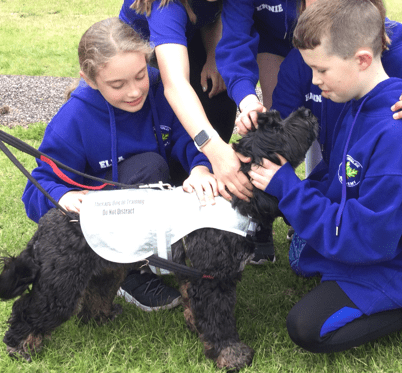
(see Help and Support – Health & Wellbeing page in ‘Parents’)


